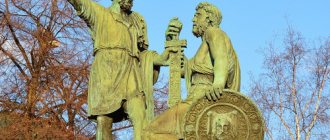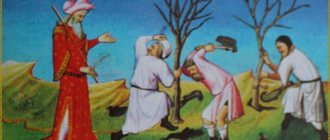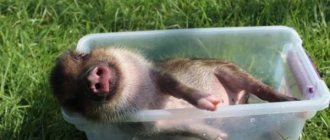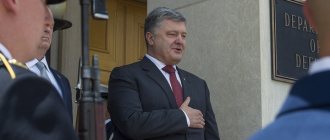Foreword by the publishing partner
Dear readers, in the history of any science there are names that are known to everyone, even those who have never been particularly interested in this science. Isaac Newton and Albert Einstein, Nikolai Lobachevsky and Dmitry Mendeleev, Chokan Valikhanov and Kanysh Satpayev - all these are names-signs, names-symbols that remind us of the immortality of genius, of the eternal scientific search, of human decency and civic courage.
In this series, the name of Pyotr Leonidovich Kapitsa occupies one of the first places. The greatest physicist of the 20th century, an outstanding organizer of science, he lived a long and difficult life, maintaining, amid the storms of the era, devotion to moral ideals, loyalty to friends and constant optimism. For many years he worked in Great Britain in close collaboration with the outstanding English physicist Ernest Rutherford and achieved an honor previously inaccessible to a foreigner: a laboratory was created especially for him in Cambridge. After returning to the USSR, Kapitsa founded the Institute of Physical Problems and the Moscow Institute of Physics and Technology. His main discoveries are related to the phenomena of superfluidity of liquid helium and low-temperature physics. He left behind several scientific schools; his numerous students continue their search today at the forefront of modern science.
If the scale of the scientific genius of Peter Kapitsa, awarded the Nobel Prize for his work in the field of fundamental physics, can only be fully appreciated by specialists, then the scale of his human personality became clear to anyone who communicated with him, largely due to the fact that the scientist’s interests were not limited to sphere of science, but concerned art, social life and even politics.
The book that lies before you now is not a scientific work. It is not intended for physicists - or rather, not only for physicists, but for everyone who appreciates the sharpness of thought and apt words. She paints not a scientist, but a person - witty, cheerful, sometimes sarcastic - especially in those cases when he had to deal with human vices, primarily cowardice, meanness and stupidity, which were abundant at all times, including in scientific environment.
Kapitsa never stooped to settling personal scores. His judgments about people are always a reflection on Man, on his merits and demerits, on what hinders life and what helps him to follow high ideals.
Aphorisms, jokes, witty statements and short parables and anecdotes so beloved by scientists were preserved by his colleagues and students. The Scientific and Educational Foundation named after Academician Shakhmardan Yesenov, offering them to the reader today, pursues several goals. Firstly, you will be able to better understand one of the greatest scientists of the 20th century, see a lively and very nice person behind the ceremonial portrait of the Nobel laureate. Secondly, the observations and original judgments of a scientist will help you look into yourself, understand something, overestimate a lot, and believe in yourself. And finally, you will be convinced that humor does not at all interfere with serious scientific research, but, on the contrary, goes hand in hand with it, teaches you to correctly assess your own and other people’s mistakes, never lose your presence of mind, even after the most difficult failures, rise to your feet and continue the difficult task. the path to the goal.
I wish you to enjoy this simple and truthful book, which was created and left for us by Pavel Evgenievich Rubinin, a close friend and ally of Pyotr Leonidovich Kapitsa.
Galymzhan Yessenov, founder of the Scientific and Educational Foundation named after academician Shakhmardan Yessenov yessenovfoundation.org
Society sees nothing because it is kept in a state of deep hypnosis. Never before have people been as dark as they are now. The person is not given a chance to stop and comprehend what is happening. Never-ending series, one dumber than the other, vulgar variety shows, lustful or aggressive films, carefully influencing the subconscious, cultivate the spirit of selfishness and violence. A normal person in a short period of time turns into an unprincipled animal leading an absolutely meaningless life. Sergey Kapitsa
About his father: “My father was harsh with me. I was in the Far East on a ship - diving. I was the first in the country to start scuba diving professionally: I have certificate No. 2. Suddenly there was a storm warning. We went to Sakhalin - I stayed there for three days with the captain. He treated me to vodka all the time. But you can’t live on vodka alone—and there were ten rubles left. I send a telegram to my father: send me 25 rubles. I get the answer: why do you need money? I didn't even have a chance to really answer him. I went to the captain to ask for money. He says: what money? You will be my guest. And we started drinking champagne."
On Russia's oil dependence: “We are faced with a very serious crisis of science. And we must honestly admit that society is entirely to blame for it. It does not understand, does not want to understand the true meaning of science, to understand that Russian science is the only hope for the development of the country in the future. To understand that without it we simply turn into the oil and gas appendicitis of humanity and lose any cultural and scientific potential that determines our own development.”
On the ideological emptiness of the world: “Humanity must always be fed by some ideas. But now what ideas can Russia offer him? There are no such ideas. At one time, the same ideas of socialism had a colossal influence on the destinies of the world. But they are leaving. And now the ideological emptiness that fills the world is precisely one of the most difficult general cultural problems.”
About trips to the store: “We lived in the country then, and (wife) Tanya sent me to buy a kilogram of cheese. I came to the store on Smolenskaya Square and found a large cheese section.
I told the saleswoman that I needed 100 grams of each cheese. And while I was talking to her, she cut and cut everything, wrapped each piece in a separate piece of paper, and I wrote on each piece what kind of cheese it was and how much it cost. At this time, a whole tail of angry citizens formed behind me, ready to kill me.”
On feminism and the USA: “Nowhere have I seen more persecuted men than in America. They are in a terrible state, aggressive feminism is finishing them off. I remember at the institute in Boston, one venerable teacher, a Russian mathematician, was walking along the corridor, and some secretary was carrying printers. He opened the door for her, and she accused him of sexual harassment, although for him it was an instinctive movement: a woman dragging a heavy piece of iron. There was a public scandal and he had to leave the institute.”
About the Internet: “The remarkable Russian psychologist Alexei Leontiev said in 1965: “An excess of information leads to an impoverishment of the soul.” These words should be written on every website.”
About appearance: “A suit disciplines a man and organizes him internally. Once upon a time, BBC radio announcers read the news in tuxedos and evening dresses, although listeners could not see them.”
A good scientist always learns himself when he teaches.
Firstly, he tests his knowledge, because only by clearly explaining to another person can you be sure that you yourself understand the question. Secondly, when you look for a form of clear description of a particular issue, new ideas often come up. Thirdly, the often ridiculous questions that students ask after lectures <...> force us to look at a phenomenon that we always approach in a standard way from a completely new point of view, and this also allows us to think creatively. Source
Studying at the University
Initially, Pyotr Kapitsa (see photo below) planned to study at the physics and mathematics department of St. Petersburg University, but he was not accepted there. The young man decided to try his luck at the Polytechnic, and luck smiled at him. Peter was enrolled in the electromechanical faculty. Already in his first year, Professor A.F. Ioffe drew attention to the talented young man and attracted the young man to research in his own laboratory.
Refusal to create an atomic bomb
In 1945, the Soviet Union launched a program to develop nuclear weapons. Pyotr Kapitsa, whose books were popular in scientific circles, refused to take part in it. For this he was suspended from scientific activities and put under house arrest for eight years. The scientist was also deprived of the opportunity to communicate with his colleagues. But Pyotr Leonidovich did not lose heart and, to continue his research, decided to organize a laboratory at his dacha.
It was there, in makeshift conditions, that high-power electronics were born, which became the first stage on the path to subordinating thermonuclear energy. But the scientist was able to return to full-fledged experiments only after his release in 1955. He began by studying high-temperature plasma. The discoveries made during that period formed the basis for the design of a continuous thermonuclear reactor.
Some of his experiments gave a new impetus to the creativity of science fiction authors. Every writer tried to express his thoughts on this matter. Peter Kapitsa also studied ball lightning and the hydrodynamics of thin layers of liquid at that time. But his burning interest was in the properties of plasma and microwave generators.
Childhood
Pyotr Leonidovich Kapitsa, whose biography will be presented in this article, was born in Kronstadt in 1894. His father Leonid Petrovich was a military engineer and was engaged in the construction of Kronstadt fortifications. Mom - Olga Ieronimovna - was a specialist in folklore and children's literature.
In 1905, Petya was sent to study at the gymnasium, but due to poor academic performance (Latin is bad), the boy left it after a year. The future academician continues his studies at the Kronstadt School. He graduates with honors in 1912.
Further work and discovery
No matter what was happening around him, the physicist always found time for scientific work. Using an installation delivered from England, he continued research in the field of strong magnetic fields. Employees from Cambridge took part in the experiments. These experiments continued for several years and were extremely important.
The scientist managed to improve the turbine of the device, and it began to liquefy air more efficiently. The installation did not require pre-cooling of the helium. It was automatically cooled as it expanded in a special dataender. Similar gel installations are now used in almost all countries.
In 1937, after much research in this direction, Pyotr Leonidovich Kapitsa (the Nobel Prize would be awarded to the scientist 30 years later) made a fundamental discovery. He discovered the phenomenon of helium superfluidity. The main conclusion of the study: at temperatures below 2.19 °K there is no viscosity. In subsequent years, Pyotr Leonidovich discovered other anomalous phenomena occurring in helium. For example, the spread of heat in it. Thanks to these studies, a new direction has emerged in science - the physics of quantum liquids.
Work in England
In May 1921, Peter came to England as part of the Russian Commission from the Academy of Sciences. The main goal of the scientists was to restore scientific ties broken by war and revolution. Two months later, physicist Pyotr Kapitsa got a job at the Cavendish Laboratory, headed by Rutherford. He accepted the young man for a short-term internship. Over time, the Russian scientist's engineering acumen and research skills made a strong impression on Rutherford.
In 1922, Kapitsa defended his doctoral dissertation at Cambridge University. His scientific authority grew exponentially. In 1923 he was awarded a Maxwell Fellowship. A year later, the scientist became deputy director of the laboratory.
Work at the new physics institute
In 1918, A.F. Ioffe organized the first scientific research physics institute in Russia. Pyotr Kapitsa, whose quotes can be read below, graduated from the Polytechnic this year and immediately got a job as a teacher there.
The difficult post-revolutionary situation did not bode well for science. Joffe helped maintain the seminars for his own students, among whom was Peter. He urged Kapitsa to leave Russia, but the government did not give permission for this. Maxim Gorky, who was then considered the most influential writer, helped. Peter was allowed to leave for England. Shortly before Kapitsa's departure, a flu epidemic broke out in St. Petersburg. Within a month, the young scientist lost his wife, newborn daughter, son and father.
Army and wedding
In 1914, Pyotr Leonidovich Kapitsa went to Scotland for the summer holidays. There he planned to practice his English. But the First World War began, and the young man was unable to return home in August. He arrived in Petrograd only in November.
At the beginning of 1915, Peter volunteered for the Western Front. He was appointed to the position of driver of an ambulance. He also transported the wounded in his truck.
In 1916 he was demobilized, and Peter returned to the institute. Ioffe immediately loaded the young man with experimental work in a physics laboratory and invited him to participate in his own physics seminar (the first in Russia). That same year, Kapitsa published his first article. He also married Nadezhda Chernosvitova, who was the daughter of one of the members of the Central Committee of the Cadet Party.







